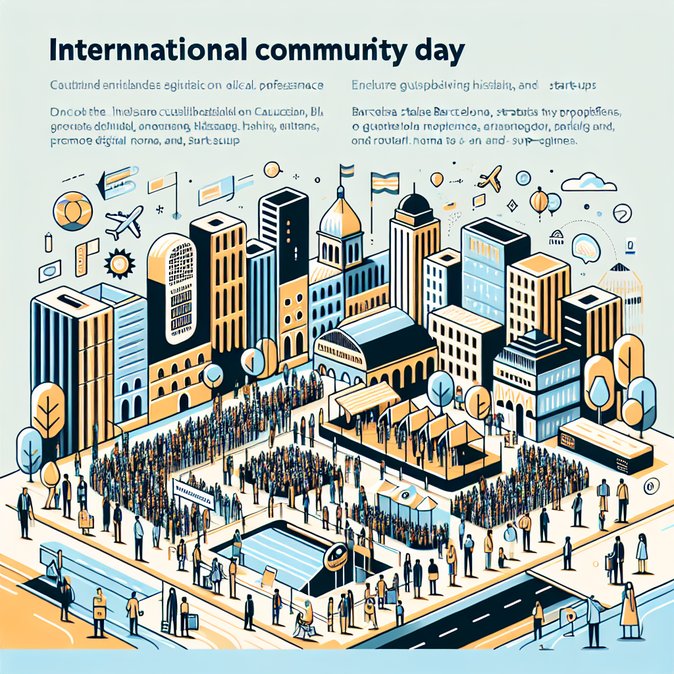
Barcelona’s Maritime Museum buzzed with more than 6,000 newcomers, long-term expats and local employers on Saturday 25 October 2025 as the city staged its 12th International Community Day. The free, city-hall-backed fair has become a key soft-landing platform for global talent relocating to Catalonia and a barometer of Spain’s attractiveness to high-skilled migrants.
Seventy-seven exhibitors—ranging from relocation agencies and international schools to digital-nomad tax advisers—offered one-stop information on housing, healthcare, visas and entrepreneurship. Conference tracks focused on Spain’s new Start-up Law, the one-year digital-nomad visa and practicalities of obtaining NIE numbers and social-security registration within ten days of arrival.
Deputy Mayor Maria Eugènia Gay told attendees that Barcelona wants to “double the number of scale-ups employing foreign talent by 2030” and pledged faster municipal empadronamiento (town-hall registration) appointments—a persistent bottleneck for work-permit applicants. HR directors from multinational firms such as HP and Nestlé hosted workshops on dual-career support and schooling options, highlighting the corporate demand for smoother family relocations.
For would-be entrepreneurs, ACCIÓ—the Catalan trade agency—ran clinics on the €1.5 billion Deep-Tech Fund that offers matching grants to foreign-founded start-ups relocating research teams to Barcelona. Meanwhile, language NGOs provided Catalan crash courses and volunteer opportunities aimed at combating perceptions that expats live in an English-speaking bubble.
Organisers reported a 15 % increase in first-time visitors compared with 2024, reflecting the surge in digital-nomad applications since Spain’s remote-worker visa opened in January. Feedback surveys suggest that clear information on Spain’s evolving immigration framework—and the chance to network with lawyers and peers—remains the main draw.
Seventy-seven exhibitors—ranging from relocation agencies and international schools to digital-nomad tax advisers—offered one-stop information on housing, healthcare, visas and entrepreneurship. Conference tracks focused on Spain’s new Start-up Law, the one-year digital-nomad visa and practicalities of obtaining NIE numbers and social-security registration within ten days of arrival.
Deputy Mayor Maria Eugènia Gay told attendees that Barcelona wants to “double the number of scale-ups employing foreign talent by 2030” and pledged faster municipal empadronamiento (town-hall registration) appointments—a persistent bottleneck for work-permit applicants. HR directors from multinational firms such as HP and Nestlé hosted workshops on dual-career support and schooling options, highlighting the corporate demand for smoother family relocations.
For would-be entrepreneurs, ACCIÓ—the Catalan trade agency—ran clinics on the €1.5 billion Deep-Tech Fund that offers matching grants to foreign-founded start-ups relocating research teams to Barcelona. Meanwhile, language NGOs provided Catalan crash courses and volunteer opportunities aimed at combating perceptions that expats live in an English-speaking bubble.
Organisers reported a 15 % increase in first-time visitors compared with 2024, reflecting the surge in digital-nomad applications since Spain’s remote-worker visa opened in January. Feedback surveys suggest that clear information on Spain’s evolving immigration framework—and the chance to network with lawyers and peers—remains the main draw.





